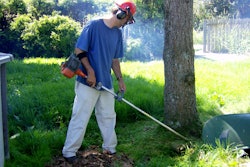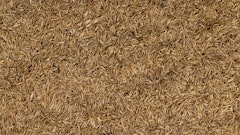Several Great Lakes states—including Minnesota, Wisconsin, Illinois, Michigan and New York—have already taken measures to greatly restrict the use of phosphorus in lawn fertilizers. Now, with algae blooms reportedly flourishing in Lake Erie, the International Joint Commission (IJC) is pushing Ohio and Pennsylvania to do the same.
The IJC is an organization created by the Boundary Waters Treaty which was signed by the U.S. and Canada in 1909. The IJC has more than 20 task forces, including the Great Lakes Water Quality Board.
Groups such as the IJC say it is not necessary to add phosphorus to an established lawn. Doing so simply results in runoff, with the phosphorus ultimately winding up in rivers and lakes. In states where phosphorus restrictions are in place, exemptions generally exist for “developing turfgrass” such as sod farms, new lawns, repaired lawns, and lawns where a soil test suggests a phosphorus deficiency. Golf courses are sometimes exempt as well. These specific exemptions and other law components do vary from state to state.
Regardless of legislative specifics, phosphorus opponents say restricted phosphorus use can make a big difference in area waterways. Lawn care professionals say there are also unintended consequences, such as reduced turfgrass health and, thus, costlier lawn care services over the longer haul. Additionally, some lawn care professionals point to the fact that thinning, unhealthy turfgrass can also lead to increased runoff—which is ultimately what the phosphorus opponents are trying to prevent in the first place.
The best preventive measure that makes sense for both sides of this debate is a soil test. In addition to the Great Lakes states of Minnesota, Wisconsin, Illinois, Michigan and New York, several other states have also imposed phosphorus restrictions, including Washington, Virginia, Maryland, New Jersey, Vermont and Maine. They, too, have exemptions for phosphorus-deficient lawns.
Original Story (michiganradio.org)



















